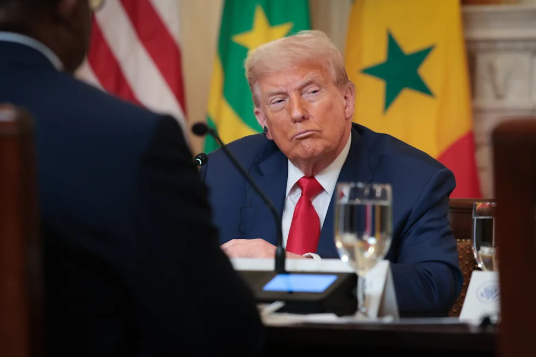President Trump surprised markets late Thursday with a letter announcing a 35% tariff on Canadian goods, but some notable industries such as energy could get some relief from the new threat.
Guidance offered Friday morning by the White House is that this 35% rate — if Trump follows through — will increase the rate on goods currently facing a 25% duty but that key carveouts are likely to be maintained.
A White House official told Yahoo Finance that the expectation is that the situation will not change for United States-Mexico-Canada Agreement-compliant goods (which are often exempt from tariffs entirely) as well as for energy products like oil and a fertilizer known as potash (these are key flashpoints that currently see 10% duties).
Yet the official stressed that no final deal has been drafted and Trump hasn’t made a final decision.

Trump’s letter also made clear that sector-specific tariffs on steel, aluminum, autos, and soon-to-be-implemented copper duties will be excluded from the 35% rate, as those goods already face duties from 25%-50%.
It was a capper on a week filled with promises of major new tariffs coming Aug. 1 on countries around the world from Brazil to South Korea as well as the unveiling of those 50% duties on copper.
Yet the expected continuation of some carveouts for Canada — as well as an Aug. 1 start date for all these new duties — may provide a measure of relief for markets that retreated Friday morning on the tariff threats as it began to digest Trump's latest surprise.
The potential carveout for USMCA-compliant goods is significant, as experts often estimate that those excluded goods under the 2020 agreement make up around 40% of imports from Canada.
Oil and the fertilizer potash have also long been keen areas of interest.
Americans not only consume Canadian oil, but American refiners often mix crude oil from Canada with American crude oil, leading to fears that a cutoff would create a ripple effect on US production.
Likewise, with fertilizer, many agricultural states are highly dependent on the potassium-based potash that comes in from Canada in order to grow their crops.
As Iowa Sen. Chuck Grassley put it this spring in a social media post: "I plead w President Trump to exempt potash from the tariff because family farmers get most of our potash from Canada."
Any relief may be tempered by the sense that these carveouts are likely to continue but remain on the table in Trump’s often renegotiated deals.
Indeed, Thursday's letter to Canada from the president ended with a line that has ended all letters this week: "These Tariffs may be modified, upward or downward, depending on our relationship with your Country."